Small boats: An asylum seeker's eight-nation trek to sanctuary
- Published
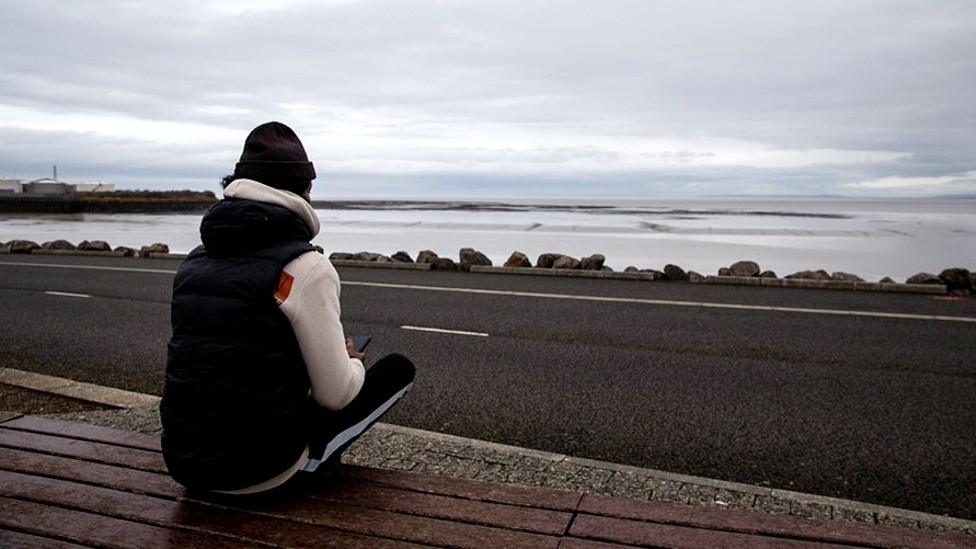
Rayan in the UK: "I am happy here. I am safe"
"It was terrifying. I thought I was going to die. There were 52 of us on a small inflatable boat and we had no idea which direction to go in."
Rayan (not his real name) is one of 45,728 people who crossed the English Channel to the UK last year seeking asylum. It was the last leg in his journey to safety which has taken him through eight different countries, including Ukraine.
Rayan revealed his story as the UK government introduces legislation to try to tackle people crossing the English Channel in small boats, which the Home Office said was placing "unprecedented strain" on the country's asylum system.
Today, Rayan is a college student in south Wales who dreams of becoming a maths teacher.
"I want to be an example for young people. I want to inspire them, show them how to live a good life. It's important for the next generation to not see difference between your colour and where you come from."
But Rayan will never forget his journey to seek sanctuary.
Born in Saudi Arabia to a Somali family, at 18 he was deported from the middle eastern nation because he refused to live under the Kafala system, which requires workers from immigrant families to give up a percentage of their earnings.
He tried to settle back in his family's homeland, Somalia, but soon realised he couldn't stay there.
"I grew up in a peaceful country, I never saw a gun in my life. On my third day [in Somalia], a gang put a gun to my head because my hair was too long for them. They took my phone, smashed it on the ground and gave me a tool to shave my head," he said.

There has been civil war in Somalia, Rayan's family homeland, for over 30 years
"The guns were like water, they were everywhere. I felt scared. I didn't leave my hotel room for days."
After having a free online visa application for Russia approved, Rayan booked a flight to Moscow, not knowing where he was going to sleep. There, he soon felt welcome and made friends.
But when his visa expired after two-and-a-half months with no option for renewal, it was time to move on again.
'Police beat me every day'
Rayan said his group's passports had been taken by the police, so with no legal way to leave the country, they went to a man they knew working with the government who smuggled people into Ukraine.
His friends went ahead without him while he waited for his uncle in Saudi Arabia to transfer money to pay the £1,400 smuggling fee.
It was a journey he wasn't sure he'd survive. He described being deceived by the people smugglers, physically abused and left naked without his possessions. Shortly after he arrived in Ukraine, he was arrested and said police beat him for days.
"I understood Russian at that time but couldn't speak it. I had a translator from Egypt. One policeman would ask a question and one would beat me," he said.
"I told them to bring me back to Somalia. They told me 'How many people die in Somalia every day?'"
He said the officers said no-one in Somalia would care about him.
Rayan said he was racially abused and had a tooth knocked out. The officers wanted to know the name of the smuggler, but he didn't know. That time haunts him to this day.
''I looked at my friends, all of us had cuffs on our hands, all in blood. But we felt a little bit confident because we were still alive.''
After a four-month stay in prison, he was speaking Ukrainian and vowed never to go with smugglers again.
Things improved when he started a relationship with a Ukrainian woman, and lived with her family for a year-and-a-half, although the relationship ultimately ended.
As Russia's invasion of Ukraine approached, policemen asked Rayan and his friends to join the army, promising citizenship, but they did not want to have to fight.
"I had two choices," he said. "Go to the Ukraine army or go back to Somalia."
A Ukrainian friend took them to hide in a village on the border.
"That September was very cold. We stayed in the bush. It was -15C. The third day I felt like it was my last day. You can't move, the cold comes inside your body - shaking all the time."
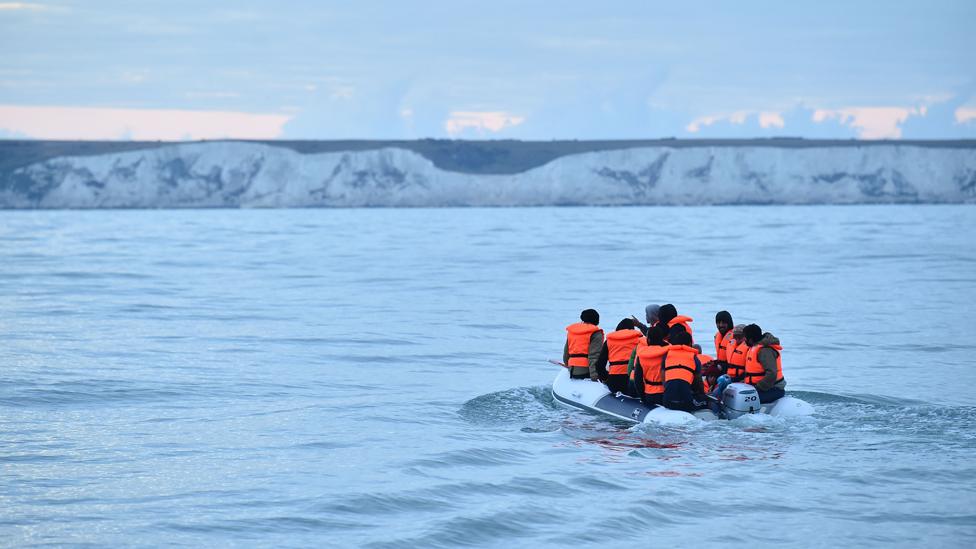
Thousands made the treacherous crossing across the English Channel in 2022
They were moved to Hungary and then Slovakia before a stranger offered them a free lift to Vienna.
But the police in Austria took all their savings, phones, belongings, and took them to jail because they arrived illegally, he said.
"I had a panic attack because of the Ukrainian jail," said Rayan.
"When I was there, I remembered everything that happened to me. I was afraid the same would happen again, in jail for four months, no phone, no one to talk with."
He was taken to a refugee camp in the mountains where he was able to earn money translating for Arabic and Ukrainian speakers, and said he would have chosen to stay in the country were it not for the "months, or years" he said it would have taken to receive refugee status documents.
Rayan said he and other African asylum seekers received racist abuse from the authorities.
Together, with a Yemeni refugee friend and his Ukrainian wife, Rayan decided to leave and they travelled to France, where they were welcomed as refugees of the Ukrainian war.
Rayan said he was left with no option but to then make the dangerous channel crossing.
He said he feared he would be sent back to Austria if he stayed on European Union land. So he chose to leave for Britain, as he had already learned some English from movies and games.
In March, the UK government published the Illegal Migration Bill in an effort to reduce the number of crossings via small boats, after record numbers arrived in the UK this way in 2022.
The Home Office said: "The unacceptable number of people risking their lives by making these dangerous crossings is placing an unprecedented strain on our asylum system.
"Our priority is to stop this illegal trade, and our Small Boats Operational Command is working alongside our French partners and other agencies to disrupt the people smugglers.
"The government has gone further by introducing legislation which will ensure that those people arriving in the UK illegally are detained and promptly removed to their country of origin or a safe third country."
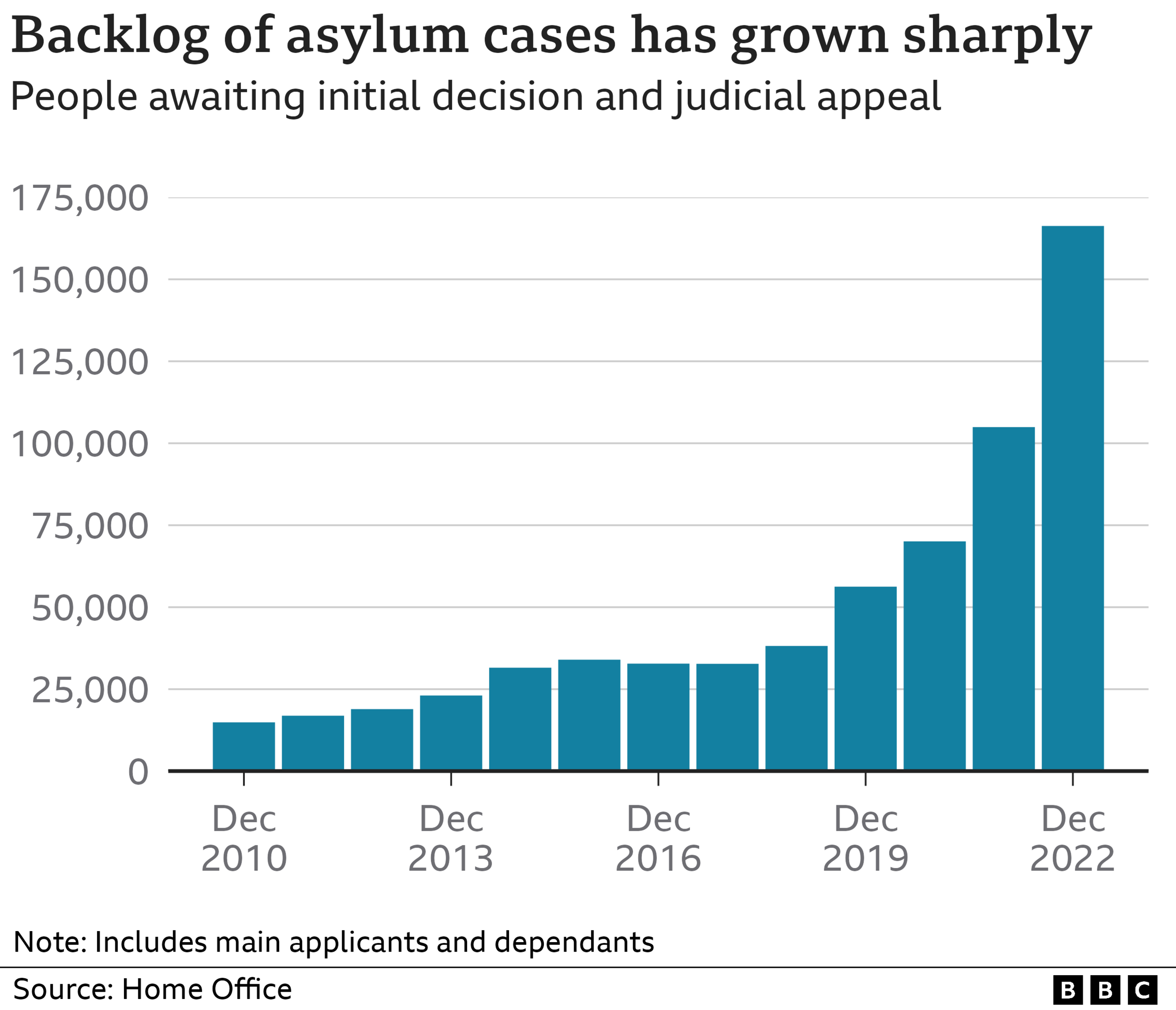
It was an early sunrise. By the time the small inflatable boat set off with more than 50 people on board, Rayan already regretted his decision.
He said: "You feel hopeless, no power. It's the only thing you could do.
"I took my life jacket off. I just wanted to swim back to the beach. But the water was freezing. It would stop your heart.
"I was really scared. I was dizzy and sick."
'You are gambling with your life'
After 18 hours on the cramped boat, Rayan and the others onboard were picked up by a ship off the English coast.
Comparing his experiences in Europe, Rayan said he was "shocked" by how he was treated by police and immigration officials once in the UK.
"I never felt like that. They treated me nicely and polite. I felt like someone who lives here," he said.
''I felt thankful. The point we should understand is not [everyone] has the luck of crossing the Channel. You are gambling with your life. Now I'm thankful I didn't sink."
He misses his family "more than anyone can imagine" and said he would not have left home if it had been safe.
"I swear I'd be back; I'd never come to Europe. Why would I take all these risks if I had a good country?
"My life in Saudi Arabia was 100 times better than in the UK. They think we come for money, but no, we come because of risk to our lives.
"I don't care about money. I only care about living a safe life."
Rayan now lives in temporary accommodation where he does not pay rent.
He said he receives £38 a week while his asylum application is being processed and has no right to work, but he said he has no complaints.
"I am happy here. I am safe."
The original version of this article was revised to make it clear that Rayan entered the UK illegally and that he received temporary accommodation for which he does not pay rent in addition to the payment of £38 per week which was noted in the original version.
Related topics
- Published10 March 2023
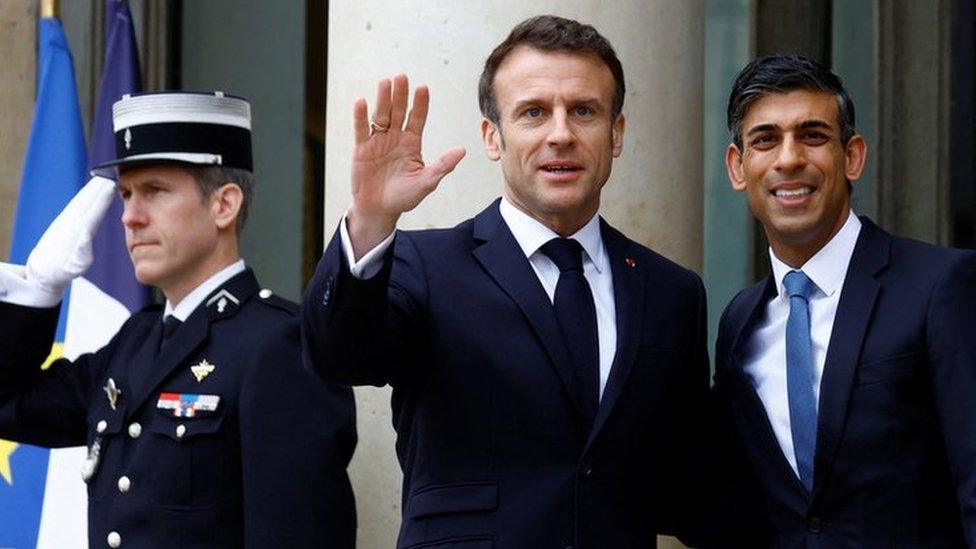
- Published12 November 2022
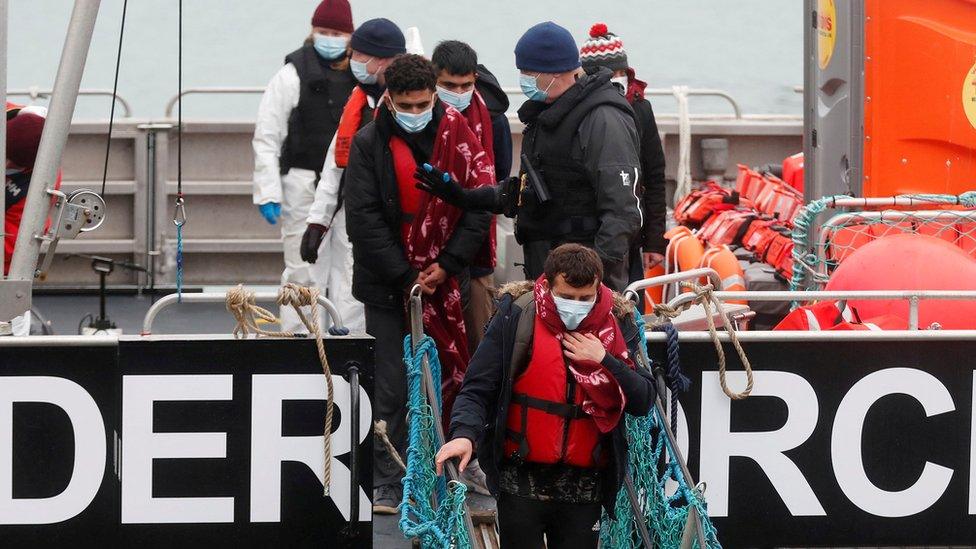
- Published8 March 2023
